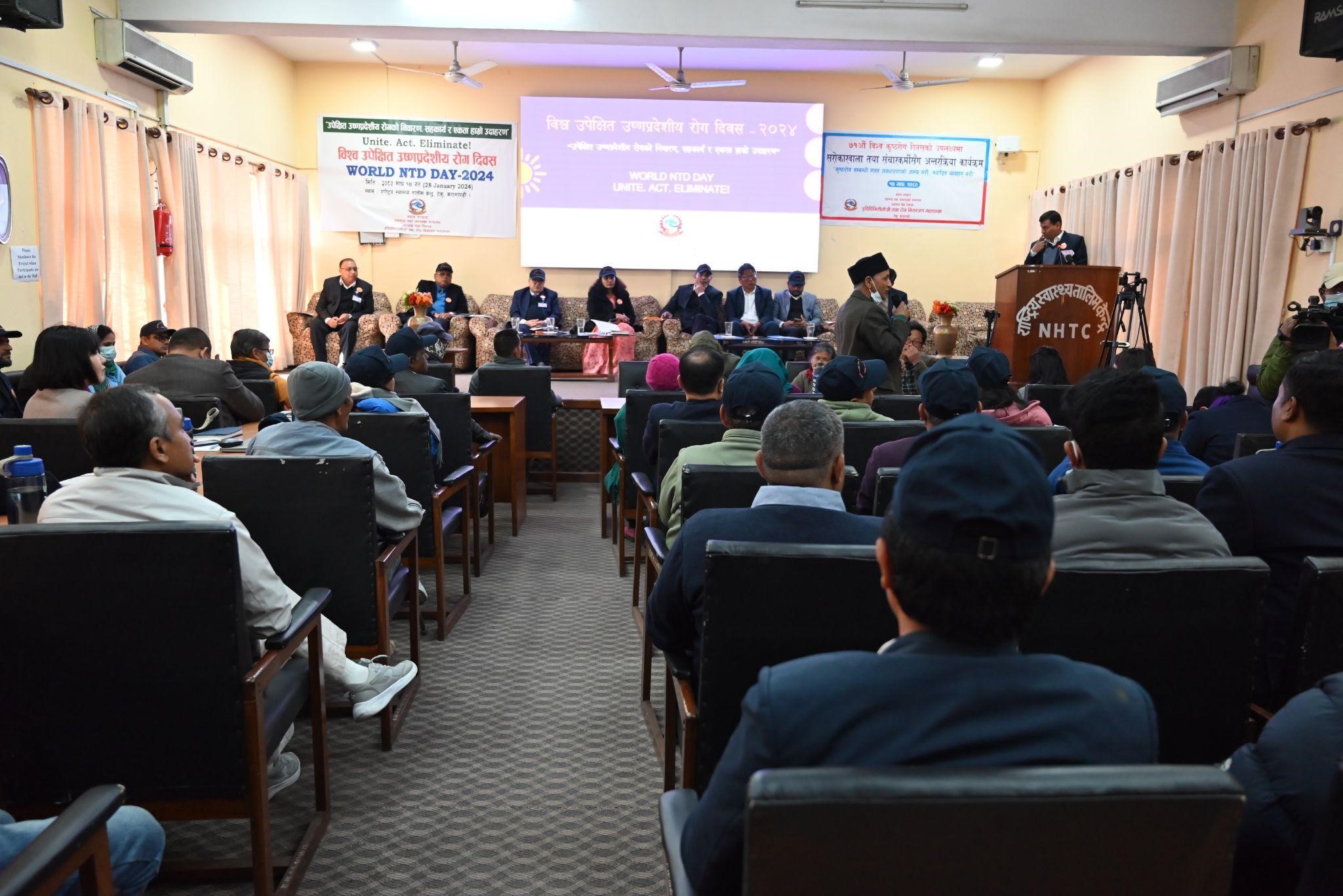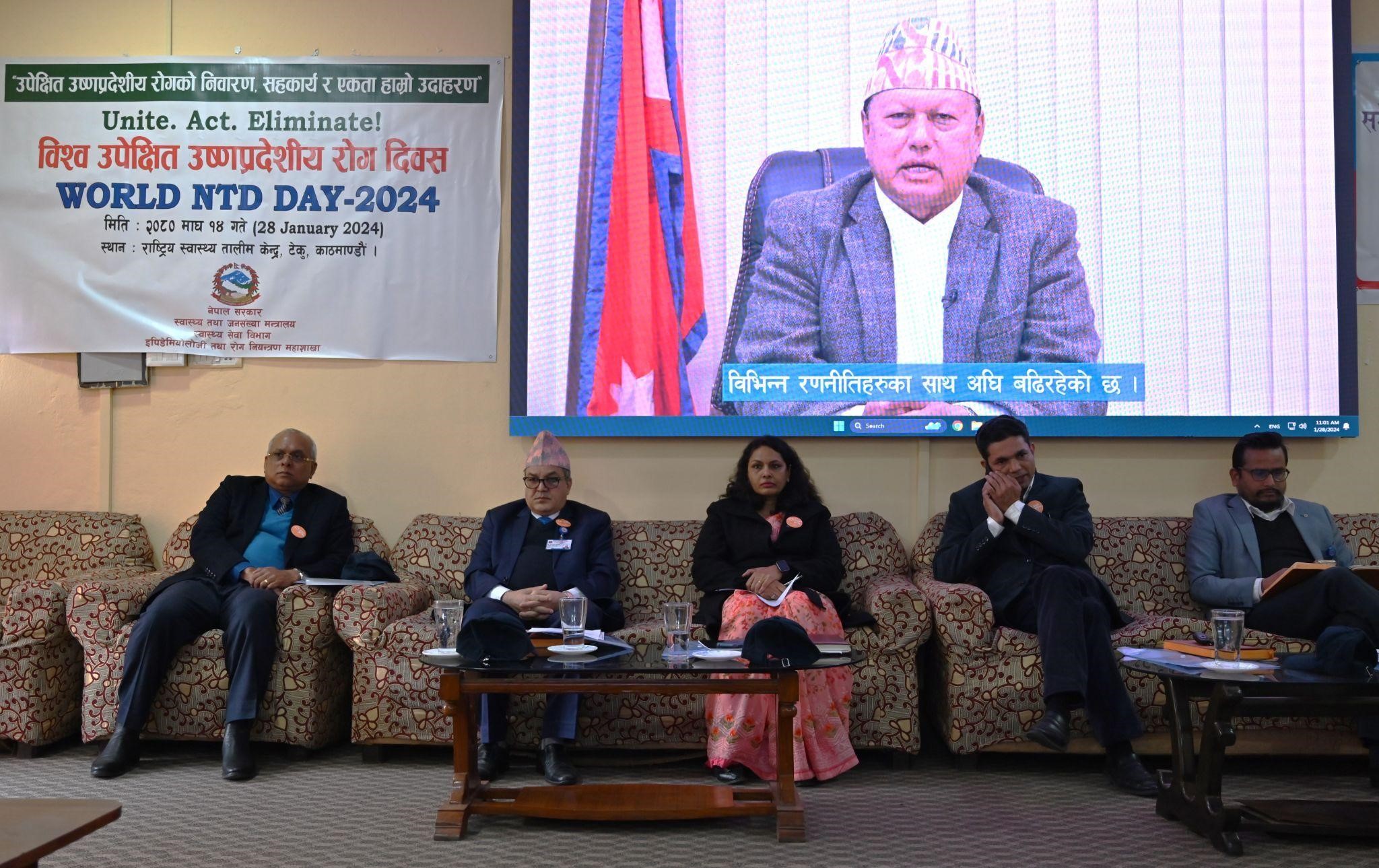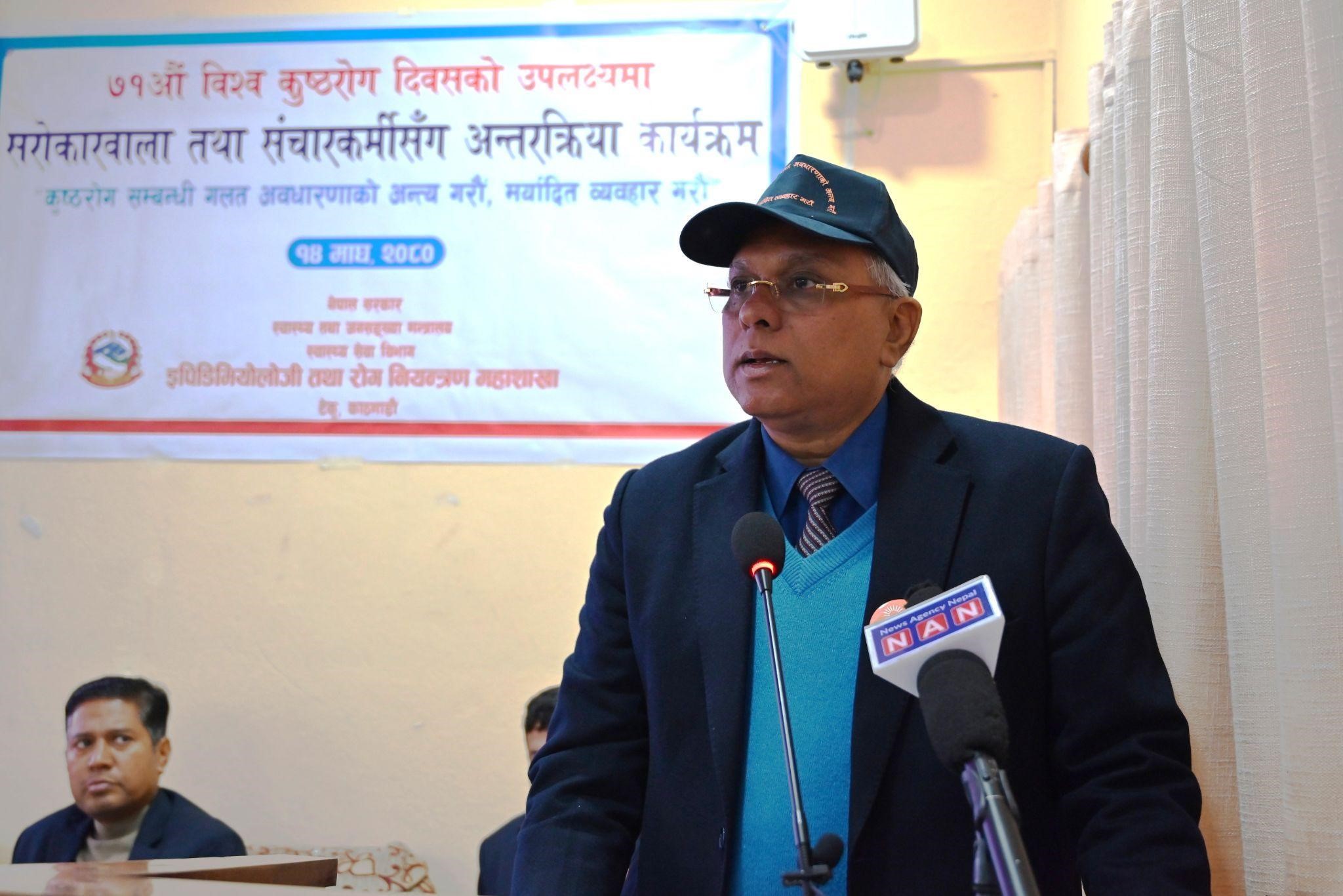Kathmandu, Bagmati Province –The Epidemiology and Disease Control Division (EDCD) of the Department of Health Services, Ministry, of Health and Population (MoHP), organized a commemorative event on 28 January 2024 to jointly mark World Neglected Tropical Diseases (NTD) Day and World Leprosy Day with the participation of WHO, partners, civil society organizations, and media personnel.
The event, held at the National Health Training Center in Kathmandu, aimed to highlight the pervasive impact of NTDs on impoverished communities in Nepal. In Nepal, NTDs such as leprosy, lymphatic filariasis, kala-azar, dengue, rabies, and snakebite envenoming continue to pose public health challenges and disproportionately impact marginalized populations.

Celebration of 5th Neglected Tropical Disease Day and 71st World Leprosy Day.
Speaking at the event, Dr Rudra Prasad Marasini, Director of the Epidemiology and Disease Control Division (EDCD), presented an overview of the national NTD programs, while stressing the need to move towards adopting more integrated approaches and enriching community involvement in the fight to eliminate NTDs.
In his presentation on leprosy, Dr Prashnna Napit, Section Chief, Leprosy Control and Disability Management Section, EDCD, highlighted the 4 strategic pillars of the National Leprosy Strategy, and shared national targets, ongoing activities, and challenges faced.

Honorable Minister of Health and Population, Mohan Bahadur Basnet, sharing his remarks via a video message.
Through a video message, Honorable Minister of Health and Population, Mohan Bahadur Basnet, called on all stakeholders to ensure prompt treatment of leprosy patients and thanked all individuals working towards achieving the goal of zero leprosy for their contribution.
In his remarks, Dr Rajesh Sambhajirao Pandav, WHO Representative to Nepal, highlighted the burden of NTDs which affects over 1.6 billion people worldwide and urged for unified action to combat these diseases.
In her remarks, Dr Sangeeta Kaushal Mishra, Director General of the Department of Health Services, highlighted the need for collaboration, strategic planning, the crucial role of media, and community engagement in eliminating stigma associated with NTDs.
During the event, leprosy-affected individuals shared their lived experiences, emphasizing the need for increased community awareness, expansion of post-leprosy treatment, and the abolishment of discriminatory laws related to the marriage of persons affected by leprosy.

Dr Rajesh Sambhajirao Pandav, WHO Representative to Nepal, sharing his remarks.
The event concluded with a call to action: Unite. Act. Eliminate! This global plea emphasized the need for collective efforts from leaders and communities to combat the inequities driving NTDs in Nepal. This event was widely covered by various national media portals, and key messages on NTDs were delivered to the public.
Under the theme "Unite. Act. Eliminate" WHO is calling on everybody, including leaders and communities, to unite and act to address and eliminate the inequalities that drive neglected tropical diseases (NTDs) and to make bold, sustainable investments to free the world's most vulnerable communities impacted by NTDs from a vicious cycle of disease and poverty. Similarly, World Leprosy Day 2024 centered around the theme "Beat Leprosy," focusing on eradicating the stigma associated with the disease and promoting dignities of affected individuals.
